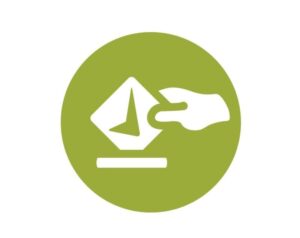The state cabinet of Bihar is expected to approve a recent proposal that will make it the first state in India to use biometric technology in its upcoming rural polls in an effort to reduce voter fraud.

According to reporting by Swarajya, the proposal was the work of the region’s panchayati raj department — a grassroots system of local self-governed villages in the rural parts of India — and, if it is approved, the effort will take place over ten phases throughout October and November later this year.
Biometric authentication by way of a photograph and thumbprint will be used to verify the identities of voters before they are able to cast their vote, with any biometric data collected stored in the cloud in a central and permanent database.
In the case of any suspected fraudulent activity, voters will be required to further authenticate their identity using their government-issued Aadhaar card or other official identifying documents.
“This will lead to immediate detection of bogus or multiple voting,” said Bihar additional chief secretary Amrit Lal Meena. “For instance, if a voter goes to another booth to cast his vote after having already exercised his franchise in one, an immediate alert will be flashed.”
Concerns over the new system resulting in a prolonged voting process in Bihar’s rural areas where internet coverage is generally poor were dismissed by Meena, who noted that the biometric devices that will be used don’t require fast internet speeds.
The pilot project is expected to cost roughly $3.7 million (US), and will be conducted in a partnership with Broadcast Engineering Consultants India Limited, a public sector company. It is expected that if the project is deemed a success, it will be replicated to other polls in the state, with a possible expansion across the country in the future.
This is the latest example of India´s rapid adoption of biometric technology at all government levels. While in this case the panchayat proposal represents a local embrace of the tech, the nation’s massive Aadhaar program, established in 2009, is the largest national digital registration program on the planet, with more than 1 billion ID holders.
Source: Swarajya
–
August 6, 2021 — by Tony Bitzionis








Follow Us